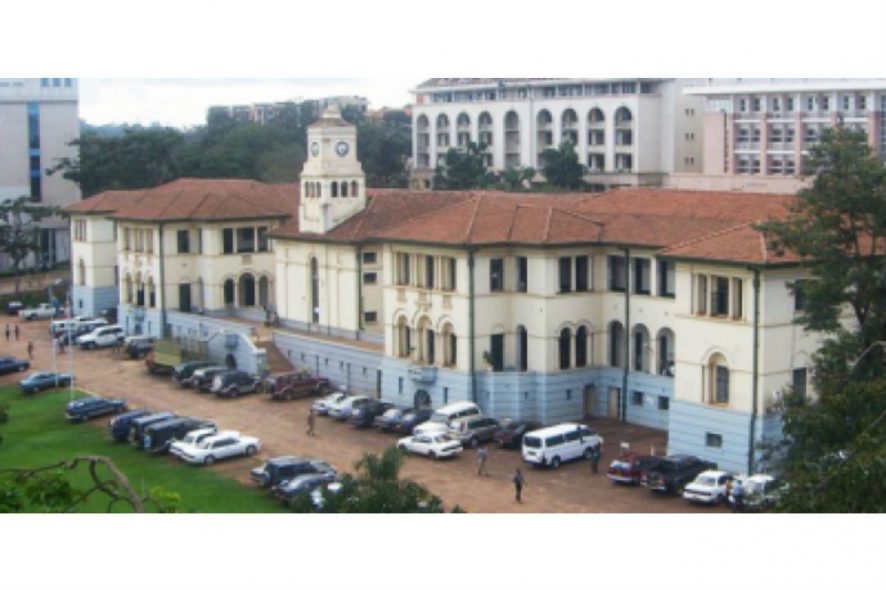Supreme Court of Uganda: The Full Bench of Katureebe, CJ., Arach-Amoko, Mwangusya, Opio-Aweri, Tibatemwa-Ekirikubinza, and Mugamba, JJ SC; and Tumwesigye, AG JSC upheld a Constitutional Amendment which negated age bar for the President and Local Council V Chairpersons.
The Constitutional Court headed by Owiny-Dollo, DCJ. had declared that the Constitutional (Amendment) Act No. 1 of 2018 which removed the age limit for the President and Local Council V Chairperson as lawful. The Appellants,
The Court referred to various judgments passed by the Courts of different countries on the basic-structure doctrine and thereby, referred to the landmark judgment by the Supreme Court of India, Kesavananda Bharati v. State of Kerala, (1973) 4 SCC 225. Quoting the judgment, the Court stated: “According to the doctrine, the amendment power of Parliament is not unlimited; it does not include the power to abrogate or change the identity of the constitution or its basic features.” The Court stated on the judge-made principle that a country’s Constitution has certain basic features that cannot be amended by its legislative body. The Court also stated that “while Parliament has wide powers to amend the Constitution, it did not have the power to destroy or emasculate the basic elements or fundamental features of the Constitution. The Supreme Court declared that the basic structure or features of the Constitution rest on the basic foundation of the Constitution. The basic foundation of the Constitution is the dignity and the freedom of its citizens which is of supreme importance and cannot be destroyed by any legislation made by the Parliament.”
The Court quoted Minerva Mills v. UOI, (1980) 3 SCC 625 as well, stating that Parliament has no power to repeal, abrogate or destroy basic or essential features of a constitution. It reinstated that the Supreme Court of India, in this case, had also stated that any particular feature of the Constitution being “basic” or not, shall be determined with the subject matter of each case.
Thereafter, the Court revisited the Preamble and various Articles of the Constitution of Uganda, 1995 to refer to the doctrine embedded in the Preamble and Articles itself. It stated that Article 1(2) envisages the core principle of governance that the people shall be governed through their “will and consent”. It emphasised that Article 1(3) puts forth the Constitution is the source of “all power and authority of the Government and its organs” and noted that the Constitution derives its powers from the people itself. The Court opined that this is one of the first pillars on the basic structure of the Constitution apart from the Preamble. The Chief Justice equated the doctrine as a “family house” whereby the basic structure doctrine should be the root or the strong foundation for the house, where the roof could constitute of any material or colour, and “if the wind blew away part or all of the roof, the basic structure should remain and the next day the family can put the roof. But if the weight-bearing pillars were undermined or removed, the whole structure would collapse.” It reinstated a position held in a previous judgment stating that, there are certain features, inherent to the Constitution and not stated explicitly but such features form an important part of the Constitution.
Upon deciding the issue of the Amendment, the Court used the abovementioned analogy and questioned: “whether the effect of the above said amendment was to the strong pillars, to the weight-bearing walls, or to the roof in as far as the 1995 Constitutional structure was concerned?“
The Court upheld the Amendment and put forth in consonance to the analogy provided hereinabove that “the restriction on age may be a roof or shutter on a house; very important on the house but capable of being altered without changing the basic structure of the particular house\ It is not a foundation or a strong pillar on the house which, if changed, would lead to the collapse of the house.” It stated that this amendment merely increased the spectrum of the people’s choice and did not restrict it thus not violating the basic structure.
The Judgment also provided various examples of other countries whereby a Prime Minister or President was re-elected despite not confirming to the age stipulations provided. It was the people’s choice which preceded such stipulations. The Majority upheld the decision of the Constitutional Court and discarded any such contentions of the violation of the basic structure of the constitution. [Male H. Mabirizi K. Kiwanuka v. Attorney General, 2018 SCC OnLine UGSC 33, decided on 18-04-2019]






